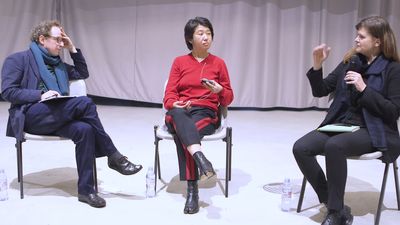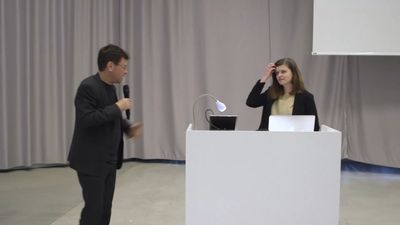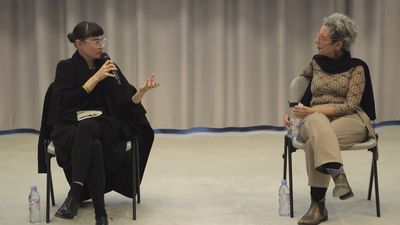Us-Mexico Border: Third Nation Or Occupied Territory?Michael Dear in conversation with Benedikt Korf
After 2006, 650 miles of fortifications were constructed along the land portion of the US-Mexico border. The walls and fences had little or no demonstrable impact on US national security, drug trafficking, or undocumented immigration. Instead they caused immense environmental damage, disrupted life and trade along the borderline, and imposed a military-style occupation and detention “gulag” upon border communities. The “twin cities” that straddle the border represent a “third nation” with more than 10 million residents and where over a billion dollars of binational trade crosses daily. The occupied third nation is now threatened by further fortifications that will seal the entire 2,000-mile border at a cost of 25 billion Dollars. An architecture and urbanism of occupation is instrumental in achieving this goal, which is roundly opposed by the majority of third nation dwellers.
The lecture will be followed by a conversation with Benedikt Korf.
Michael Dear is Professor Emeritus in the College of Environmental Design at the University of California, Berkeley, and Honorary Professor in the Bartlett School of Planning at University College, London. His graduate education was at University College London and the University of Pennsylvania. Before coming to Berkeley in 2009, he worked for two decades at the University of Southern California in Los Angeles. His most recent book, Why Walls Won’t Work: Repairing the US-Mexico Divide was awarded the Globe Prize for Geography in the Public Interest from the Association of American Geographers. His latest edited volume, entitled Geohumanties: Art, History, Text at the Edge of Place focused on emerging transdisciplinary intersections among geography, environmental design, and the humanities. He is currently curating an exhibition entitled Art of the California-Mexico Border at the Richmond Center for the Arts.
Benedikt Korf is a geographer and freelance consultant in international development. Completing his PhD and a research fellowship at the Chair of Resource Economics, Humboldt-Universität zu Berlin, he has been a lecturer in geography at the University of Liverpool. Since 2007 he is Assistant Professor at the department Department of Geography, University of Zurich.




